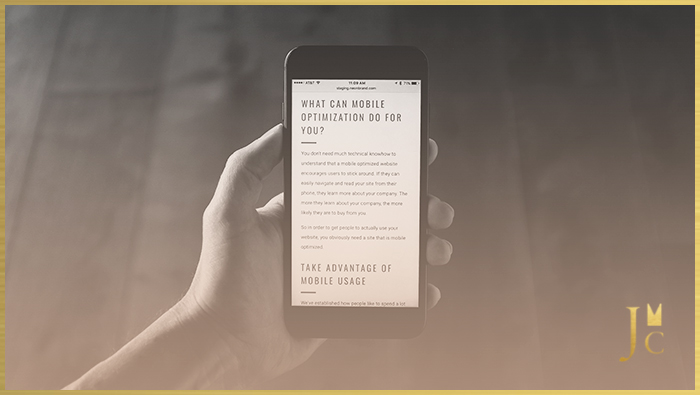I’ve been getting A LOT of questions lately about SEO.
And while I know enough to be dangerous (thanks to the WordPress SEO plugin!), I am in no way an SEO expert.
That’s why, this week I’m turning my blog over to Shae Baxter, the “SEO Rock Star” in my life. Her mission is to create the best SEO + blogging training resource for women entrepreneurs on the planet, and to inspire tens of thousands of women to spread their message far and wide using this powerful force that is Search Engine Optimization. And she does just that!
So, without further ado, here are:
The Top 5 SEO Mistakes To Avoid (So You Won’t Hurt Your Rankings):
Can you relate to any of this?
You finally decided to incorporate SEO in your online marketing strategy. You’re excited – you’ve just chosen some popular keywords, sprinkled them onto your page and voila here comes a ton of free traffic.
You wait with baited breath to see your website start climbing the search results.
Sure, you start to see some improvement in your rankings but it’s taking longer than you think. You begin to wonder if this SEO thing is really just one big hoax.
There are many different types of SEO mistakes that I see people make on a regular basis. And in many cases, people aren’t even aware they’re making these mistakes.
After coaching many clients in my one-to-one SEO coaching program, I’ve learned what SEO mistakes to avoid so you can move up the rankings and get more traffic to your website.
Sometimes all it takes is a few simple corrections to start seeing real results.
Today I am going to outline 5 of the most common SEO mistakes to avoid so you won’t get a slap down by Google.
#1. You don’t know who your ideal client is
If you don’t know who your ideal client is, then you’re not ready for SEO.
There, I said it. And I mean it.
I believe that this is by far the most common SEO mistake I see people make. How do you know what type of content to create if you don’t know who you’re marketing to? What words and phrases are they typing into Google to find you? (And I don’t mean just doing keyword research. That comes later).
I especially notice this when I do keyword reports for some of my clients. I get my clients to complete a questionnaire after they purchase the report. The first question I ask is to describe their ideal client in detail.
Figuring out who your ideal client is has to be your first step. To do this, you literally need to think like your ideal client. It’s sets the foundation for all your marketing activities. You simply cannot build a business without doing this fundamental research and SEO is no exception.
If you’re struggling to understand who your ideal client is, then put yourself in their shoes. What would you type into Google at 3am if you’re overcome with grief after breaking up with your husband? If you’re looking for a photographer to photograph your kids 6th birthday party, what do you reckon you would search for?
What is it that you’re trying to solve for other people? What pain are you attempting to take away or what positive outcome do you want to provide people?
List all the topics that directly relate to the product or service you’re selling then create content that educates and informs your readers. You want to reverse engineer your sales. For example, you’re a child portrait photographer that specialises in natural light photography. You could write a blog post about “7 ways to prepare your child for an outdoor photoshoot.” One of those ways is to bring your child’s favourite toy or blanket.
Finding out what words and phrases people are actually using to find you is critical too. But before you start doing keyword research, pay attention to the conversations you have with people in real life. Make an Evernote or swipe file of the exact words and phrases people are telling you at networking events, blog comments, on emails, questions and discussions in Facebook groups etc. Can you identify any patterns or behaviours about your ideal client?
This then leads us onto mistake number 2.
#2. Failing to choose the right keywords
Too many people focus on generic, super high search volume keywords such as weight loss, health and life coaching, car sales and self love.
Unless your website has a high domain authority, there’s very little chance you will even get found and ranked for these types of keywords. If you do get some traffic, chances are it’s the wrong type of traffic anyway (and this is contributing to your high bounce rate, which Google interprets as a negative signal about your site).
Generic keywords are likely to attract visitors to your website with no interest in what you’re offering and who are looking for free information. You want to attract prospective clients that are willing to pay money to solve a particular problem or are interested in buying something from you.
The problem with generic keywords is that they’re too broad and have lots of competition. You don’t know the motivation of a person typing “weight loss” into Google. However, you have a very clear indication of what the person is searching for when he or she types “how to lose weight without counting calories.”
You’re better off targeting specific keywords, which are often phrases and queries. These types of keywords have less search volume, but you have better chance of scoring on page one of Google because there’s less competition for these keywords.
Make it easier for yourself.
Create great content that will get found + read by the people that matter.
As your site grows and gains more domain authority, you could start ranking for more competitive keywords.
#3. Not configuring your content management system correctly
This is something not many people are aware of know they have a problem with.
While there are a lot of content management systems that have SEO functionality, most of them, even WordPress, require some level of configuration.
In addition, there are a number of SEO plugins that should be installed and configured. While it’s easy enough to install them, configuring them correctly is another thing.
The most common SEO plugin to install in WordPress SEO by Yoast. You should be setting custom page titles and meta descriptions as well as generating a site map, customising permalinks to be more SEO-friendly and eliminating duplicate content.
What concerns me most, however, is some people believe that just by having a SEO plugin installed on their site means their “doing SEO.” This is NOT the case. Just because you have the SEO plugin installed on your site does not mean you are attracting the right people to your website. It does not mean you have an effective SEO strategy in place.
It’s what you put in the SEO plugin that counts – the page title, the meta description, if you need to hide certain pages from showing up in the search results (yes this is just as important. You know, those thank you pages, for example, after people sign up to your list) etc. There will be pages that you don’t want Google to find.
And it’s not enough just to pluck random keywords out of nowhere and put those in the plugin too. You need to have carefully chosen what keywords you are deliberately optimising for. Remember, SEO is about knowing what keywords you are trying to rank for. That’s the whole point of SEO – to know what words and phrases you want Google to find you for.
Having a SEO plugin on your site is merely the infrastructure – it’s what you put in those fields that does the real work.
#4. Poor on-page optimization
…Or in other words, over-optimizing your content or keyword stuffing.
Believe it or not, there is such as thing as over-optimization and you could be giving Google a big red flag about your website.
You need to be careful because Google can and will penalise you for this.
Over-optimization is when a person is repeating their keyword phrase too many times on the same page.
This is where SEO has evolved. Keywords are still important for SEO but the technology Google uses to determine what your page is about is a lot smarter these days. Search engines have become more intuitive and Google can now understand the meaning and context between different words and phrases a lot better than it used to.
For example, if you have a page about 6 tips on practicing more self care on a daily basis, it would be normal of you to also use words and phrases such as self love, forgiveness, staying away from negative people, healthy changes and meditation (depending on the context of the post you’re describing). If you’re trying to rank for the keyword “self care,” it’s still important to mention it a few times throughout the same page but really no more than 2 or 3 times.
Google doesn’t want you to create content that sounds contrived so the key is to write normally and use your keywords naturally. You wouldn’t mention the words “self care” 50 times in a short one-to-one conversation with anyone, so it wouldn’t be normal of you to write it 50 times on the same page too (or even 10 times on the same page).
When you’re writing online content, use variations of your keyword, not just your exact keyword. For example, if your keyword is “yoga poses for beginners,” then mix it up by saying “beginner yoga poses” or “simple yoga poses.”
Over-optimization can get you black-listed, which means your site can be removed from the search engine result pages, so don’t do it.
#5. Lack of internal linking
This is a big one I teach my one-to-one SEO clients.
There are far too many people not linking to their internal pages to boost their search rankings.
You want to make a concerted effort to link to your other posts and pages when you’re creating blog content. You’re leaving a lot of potential on the table if you don’t.
One of the biggest benefits of internal linking is that you can encourage your readers to stick around longer on your website. It’s also a great way to introduce new visitors to your older content.
Your homepage is important, but it doesn’t have to be the only page you link to. Link to other pages and posts within your site.
There’s a reason why sites like Wikipedia and About.com rank for millions of different search terms.
There are plenty more SEO mistakes that people make
Other mistakes include 404 errors, not using correct anchor text, duplicate content, failing to install Google Analytics and countless others.
Have you made any of these SEO mistakes? Are you aware of any others that you or other people have made? Please let me know in the comments below.
Don’t let these common mistakes kill your SEO strategy. It’s important to educate yourself to prevent these mistakes from occurring.
You owe it to to yourself and your business.
There are 3 days of May left and that means you don’t have long time left to save $200 on my live + interactive one-to-one SEO coaching program. Get Your Blog Read By Millions is my signature program designed to help you prevent making any of these SEO mistakes, optimize your blog posts, find hidden keywords and get your blog ready to receive the right traffic. I don’t want you to miss out on these savings so book Get Your Blog Read By Millions before midnight 31 May.
xo




Great points, especially being able to describe your ideal client.
I’m really puzzled by the whole “keyword controversy” however. Yoast specifically sstates in his updated documentation on using his SEO plugin that keywords are now a complete waste of time!
People seem to continue to want to use keywords to optimize content, but Google has “gone in another direction” (for obvious black-hat SEO reasons).
What’s your take on still worrying about and investing time on identifyinmg keywords? If it is really pointless, then why devote precious time to it?
Thanks!
Great point, Karen! I think that keywords are still important, because it’s still what we’re using to search. So, when you type in Google, you’re still typing in those keywords. And it’s still turning up results that rank for them – just now they are focused on the great content, and that it’s not just {keyword} keyword {keyword} right next to each other. I think if you shoot for 3-4 keywords (such as SEO Mistakes to Avoid) for this article, it’s still going to help you rank. As opposed to the old days of just focusing on SEO as the keyword. Does that make sense?
Hi Jessica,
What you’re saying makes sense, but I place a lot of credence in Yoast and his recommendations. When he says to eliminate keywords from his SEO plugin and from optimization strategies, in general, it makes you wonder just how valid they still are from an optimization perspective…
Any thoughts regarding Yoast’s view?
Thanks!
Hey Karen, I haven’t read the post you’re describing, so I can’t really comment on his view. But, his plugin still has a home for one keyword optimization choice, so it must matter a little!